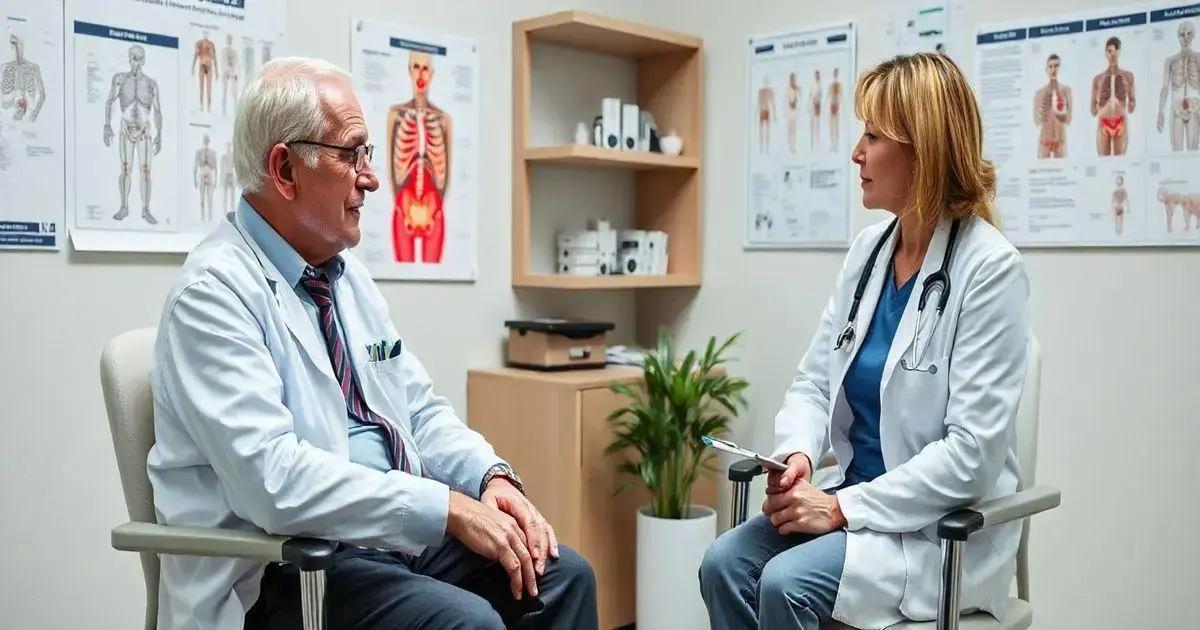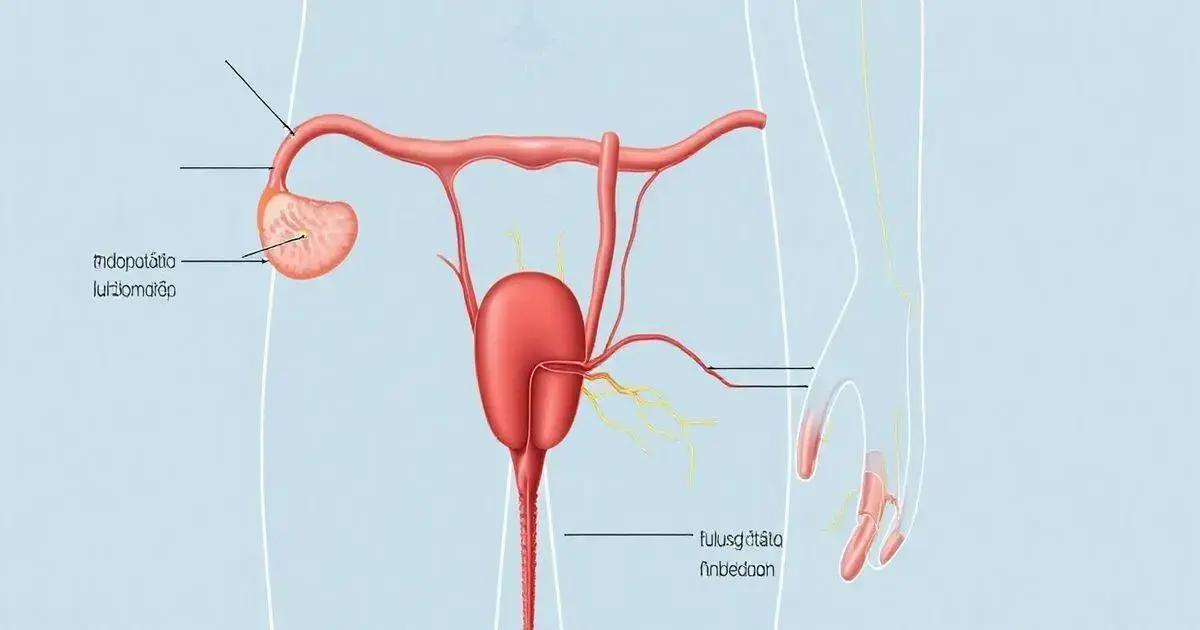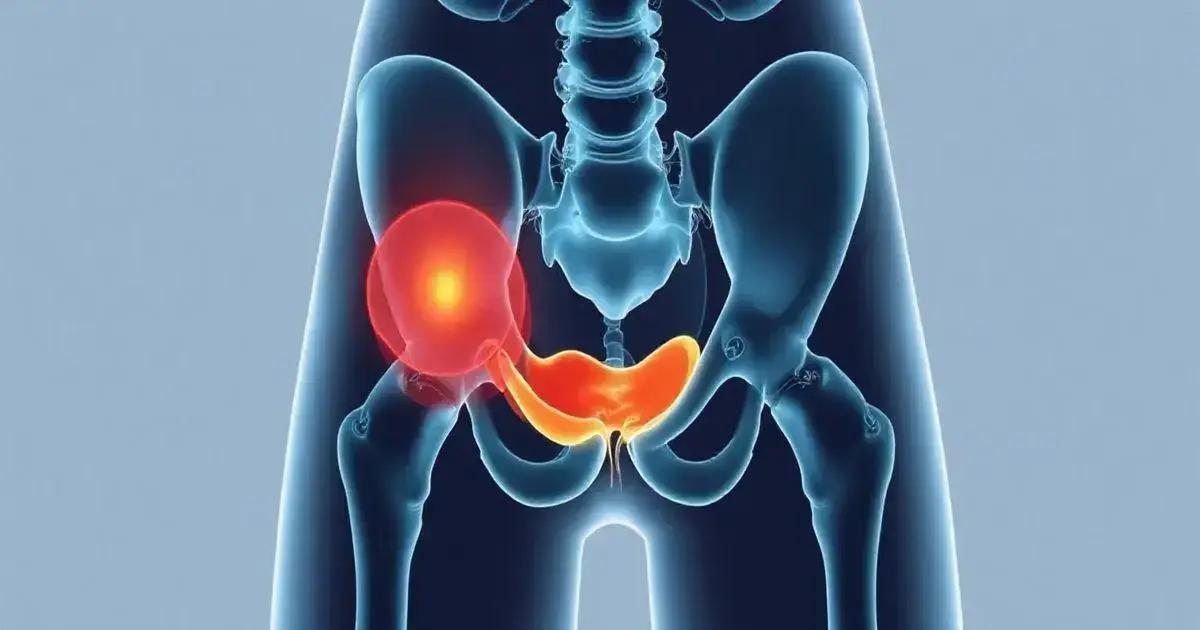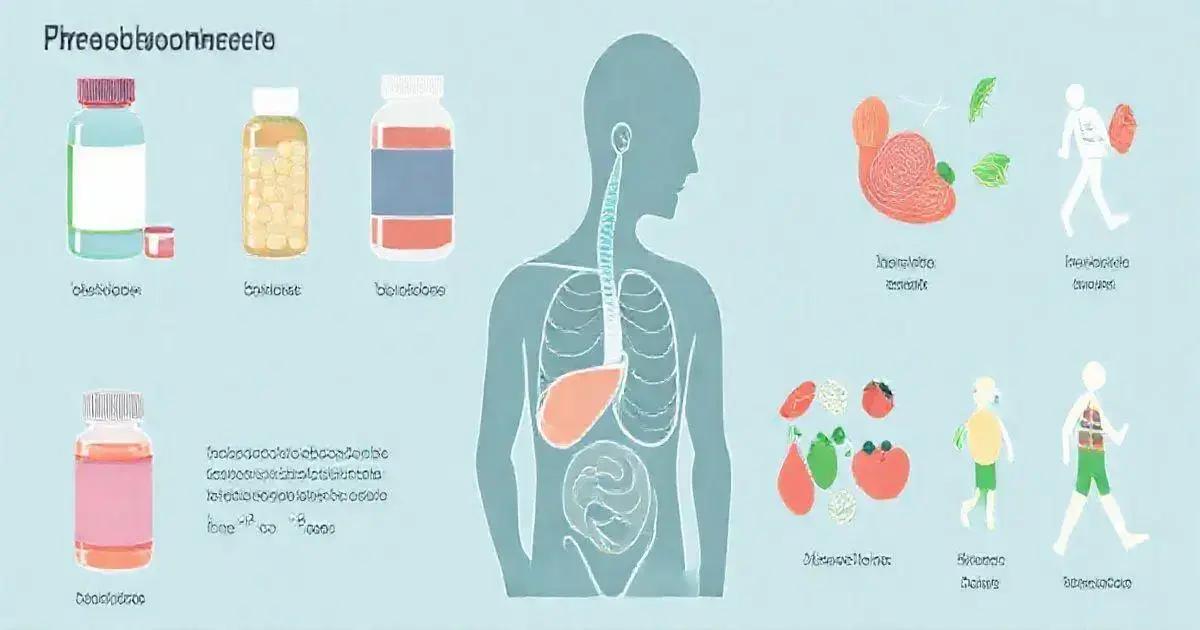Prostate issues can cause erectile dysfunction due to their impact on blood flow, nerve function, and hormonal balance. Common symptoms of prostate problems include frequent urination, painful urination, and pelvic pain. Treatment options range from medications and minimally invasive procedures to lifestyle changes like a healthy diet and regular exercise, which can significantly improve sexual health.
Many men wonder, “Can prostate issues cause erectile dysfunction?” It’s a common concern as prostate health plays a significant role in a man’s overall health. Prostate problems can lead to symptoms that are not only uncomfortable but also affect sexual performance and satisfaction. In this article, we will delve into the connection between prostate issues and erectile dysfunction, exploring symptoms, treatment options, and lifestyle changes that can promote better sexual health.
Understanding Prostate Issues

Prostate issues are common among men, especially as they age. The prostate is a small gland that is crucial for reproductive health, located just below the bladder. An understanding of prostate issues can help identify potential health risks that may lead to complications such as erectile dysfunction.
Types of Prostate Problems
There are several types of prostate issues that men may experience:
- Benign Prostatic Hyperplasia (BPH): This is a non-cancerous enlargement of the prostate gland that can cause urinary difficulties.
- Prostatitis: This condition involves inflammation of the prostate, which can be chronic or acute and lead to pain and discomfort.
- Prostate Cancer: A serious condition that may lead to erectile dysfunction if not managed appropriately.
Importance of Prostate Health
Maintaining a healthy prostate is vital as it affects not only urinary function but also sexual health. Hormonal changes and inflammation can interfere with the nerves and blood flow necessary for achieving and maintaining an erection.
Risk Factors for Prostate Issues
Several factors can increase the risk of developing prostate problems:
- Age: The risk increases as men get older.
- Family History: Genetics can play a role in prostate health.
- Lifestyle Choices: Diet, exercise, and tobacco use can impact prostate health.
By understanding various prostate issues, men can be more proactive about their health, seeking regular check-ups and discussing any concerns with their healthcare provider.
How Prostate Health Affects Erections

Prostate health has a significant impact on a man’s ability to achieve and maintain erections. The prostate gland plays a crucial role in the male reproductive system. It produces seminal fluid, which helps transport sperm during ejaculation. However, when prostate issues arise, they can affect sexual function in multiple ways.
Blood Flow and Nerve Function
Healthy prostate function is vital for proper blood flow and nerve sensation in the genital area. When the prostate is inflamed or enlarged, it can compress nearby blood vessels and nerves. This compression can inhibit blood flow to the penis, making it challenging to achieve an erection. Additionally, if the nerves that signal the brain and penis are affected, the body may not respond adequately to sexual stimulation.
Hormonal Balance
The prostate also influences hormone levels, particularly testosterone. Low testosterone levels can be associated with prostate problems and can lead to reduced libido and erectile dysfunction. Hormonal imbalances might also arise from treatments for prostate conditions, further complicating erectile function.
Impact of Prostate Treatments
Treatments for prostate issues, including surgery and radiation therapy, can also impact erectile function. Surgical procedures may result in nerve damage, leading to difficulties achieving erections. Understanding these risks is crucial for men considering treatment options.
Psychological Factors
Challenges related to prostate health can introduce psychological factors that affect sexual performance. Men experiencing anxiety about their prostate health may develop performance anxiety, compounding the issue of erectile dysfunction.
Recognizing the connection between prostate health and erectile dysfunction is essential for men. Seeking medical advice and discussing symptoms openly can lead to better management of both prostate health and sexual function.
Common Symptoms of Prostate Problems

Many men may experience symptoms that signal potential prostate problems. Recognizing these signs early on is crucial for effective treatment and management. Below are some common symptoms associated with prostate issues.
Frequent Urination
One of the most common symptoms is the need to urinate more frequently, especially at night. This increased urgency can disrupt sleep and daily activities.
Difficulties Starting or Stopping Urination
Men may find it hard to begin urination or notice a weak urine stream. This difficulty can be frustrating and is often linked to prostate enlargement.
Painful Urination or Ejaculation
Experiencing pain while urinating or during ejaculation can be a sign of prostatitis or other prostate-related conditions. Such discomfort should be addressed with a healthcare professional.
Blood in Urine or Semen
Any presence of blood, whether in urine or semen, is a concerning symptom that requires immediate medical attention to rule out serious conditions like prostate cancer.
Pain in the Lower Back, Hips, or Pelvis
Pain that radiates to the lower back, hips, or pelvic area can also indicate prostate issues. This discomfort may vary in intensity and persist over time.
Identifying these symptoms is vital for men’s health. Consulting with a healthcare provider when experiencing any of these signs can lead to appropriate diagnosis and treatment.
Treatment Options for Prostate Issues

Treatment options for prostate issues vary depending on the specific condition and severity. Here are some common treatment methods that healthcare providers may recommend.
Medications
Prescription medications are often the first line of defense for prostate problems:
- Alpha-blockers: These medications help relax the muscles around the prostate and bladder neck, making urination easier.
- 5-alpha-reductase inhibitors: These drugs can shrink an enlarged prostate by blocking the hormone that causes growth.
- Antibiotics: If prostatitis is caused by a bacterial infection, antibiotics may be required to clear the infection.
Minimally Invasive Procedures
For men who do not respond to medication, minimally invasive procedures can be effective:
- Transurethral Resection of the Prostate (TURP): A common procedure where excess prostate tissue is removed to relieve urinary symptoms.
- Laser Therapy: Laser treatments can vaporize or cut away excess prostate tissue with minimal bleeding.
Surgery
In more severe cases, surgery may be necessary:
- Prostatectomy: This surgical procedure involves removing part or all of the prostate gland and is often used for prostate cancer.
Hormonal Therapy
For prostate cancer, hormone therapy may help slow the progression of the disease:
- Androgen Deprivation Therapy: This treatment reduces levels of male hormones that can promote cancer growth.
Lifestyle Changes
In addition to medical treatments, lifestyle changes can greatly improve prostate health:
- Diet: Eating a balanced diet rich in fruits, vegetables, and healthy fats can support prostate health.
- Exercise: Regular physical activity can help maintain a healthy weight and improve overall health.
Each individual should consult with their healthcare provider to determine the most appropriate treatment plan based on their specific condition and health status.
Lifestyle Changes for Better Sexual Health

Making lifestyle changes can significantly enhance sexual health and improve overall prostate health. Here are some key changes that men can adopt:
Healthy Diet
Eating a balanced diet is essential for maintaining prostate health. Incorporate plenty of fruits and vegetables, whole grains, and healthy fats. Foods that are rich in antioxidants, such as tomatoes and berries, are beneficial. Omega-3 fatty acids found in fish can also support healthy blood flow.
Regular Exercise
Engaging in regular physical activity helps keep the body healthy and can improve hormonal balance. Aim for at least 30 minutes of moderate exercise most days of the week. Activities like walking, swimming, or cycling can enhance blood circulation and reduce stress.
Maintaining a Healthy Weight
Excess weight can lead to various health problems, including issues with the prostate. Maintaining a healthy weight through diet and exercise can lower the risk of developing prostate issues and erectile dysfunction.
Avoiding Smoking and Excessive Alcohol
Avoiding tobacco products and limiting alcohol consumption can greatly benefit sexual health. Smoking restricts blood flow, which can affect erections, while excessive alcohol can impact libido and erectile function.
Managing Stress
High stress levels can contribute to erectile dysfunction. Finding healthy ways to manage stress, such as yoga, meditation, or talking to a counselor, can improve mental health and sexual performance.
Implementing these lifestyle changes can lead to improved sexual health and a greater sense of well-being. Regular check-ups with a healthcare provider can further assist in monitoring prostate health and addressing any concerns.
In Summary: Understanding Prostate Health and Sexual Function
Prostate health has a profound impact on various aspects of a man’s life, particularly in relation to sexual function. Knowing the common symptoms of prostate issues and recognizing how they connect to erectile dysfunction is essential for proactive healthcare.
There are a variety of treatment options available, from medications to lifestyle changes, that can help improve prostate health and, in turn, alleviate sexual health problems. Making healthy lifestyle choices, such as maintaining a balanced diet, staying active, and managing stress, can significantly benefit both prostate and sexual health.
Ultimately, staying informed and consulting with healthcare providers about prostate-related concerns can lead to better outcomes for men’s health. Therefore, it is crucial to prioritize prostate health as part of ongoing well-being.
FAQ – Frequently Asked Questions About Prostate Health and Erectile Dysfunction
Can prostate issues really cause erectile dysfunction?
Yes, prostate issues can lead to erectile dysfunction due to their effect on blood flow, nerve function, and hormonal balance.
What are the common symptoms of prostate problems?
Common symptoms include frequent urination, difficulties starting or stopping urination, painful urination, blood in urine or semen, and pain in the lower back or pelvis.
What treatment options are available for prostate issues?
Treatment options include medications, minimally invasive procedures, surgery, hormonal therapy, and lifestyle changes.
What lifestyle changes can improve prostate and sexual health?
Healthy dietary choices, regular exercise, maintaining a healthy weight, avoiding smoking and excessive alcohol, and managing stress can greatly enhance prostate and sexual health.
How often should men get screened for prostate problems?
Men should discuss screening with their healthcare provider, especially if they have risk factors or are over the age of 50.
Is there a link between diet and prostate health?
Yes, a balanced diet rich in fruits, vegetables, and healthy fats can support prostate health and reduce the risk of problems.












